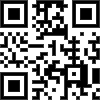RESEARCH ON SMART EDUCATION
DOI:
https://doi.org/10.30888/2663-5712.2021-10-02-019Keywords:
smart education, devices, platforms, challenges, technologyAbstract
The present paper aims at determining the main characteristics of smart education. Literature review showed that smart education is an effective, self-directed, motivated, adaptive, resource-enriched, and technology-embedded type of learning. The devices,References
Lewis M. Teaching Collocation. Further Developments in the Lexical Approach. Hove, 2001. 245p.
Schmitt N. Key Concepts in ELT: Lexical Chunks // ELT Journal, 2000. № 54 (4). P. 400—401.
Камянова Т. Г. Успешный английский. Системный подход к изучению английского языка. М.: Эксмо, 2017. С. 233—234.
Прокофьева О.Г. О применении лексического подхода при обучении английскому языку // Вектор лингвистической наукиб 2017. №11. – С.112-116.
Свирина О. Л. Об обучении английским лексическим блокам // Филологияи культура. — 2012. — № 3 (29). — С. 282—285.
Chaikovska O. Podcasts in teaching ESL. Scientific Herald of the Institute of Vocational Education and Training of the National Academy of Pedagogical Sciences, 2018. – Вип.16, С. 142-146. DOI: https://doi.org//10.32835/2223-5752.2018.16.142-146
Chaikovska O. Вплив подкастів, створених за допомогою AUDACITY, на вдосконалення граматичних навичок. Електронне наукове фахове видання “Відкрите освітнє Е-середовище сучасного університету”, 2020. – Вип. 8, С. 1-7. DOI: https://doi.org/10.28925/2414-0325.2020.8.1
Hwang. Definition, framework and research issues of smart learning environments-a context-aware ubiquitous learning perspective. Hwang // Smart Learning Environments, 2014. – Вип. 1(1), С. 1–14.
Kim J.Y., Cho B.G., Lee. Evolution to smart learning in public education: a case study of Korean public education, in Open and Social Technologies for Networked Learning, ed. by L. Tobias, R. Mikko, L. Mart, T. Arthur (Berlin Heidelberg, Springer, 2013), pp.170–178
MEST: Ministry of Education, Science and Technology of the Republic of Korea, Smart education promotion strategy, President’s Council on National ICT Strategies (2011)
Scott R., Benlamri. Context-aware services for smart learning spaces. Learning Technologies, IEEE Transactions, 2010. – Вип. 3(3), С.214–227.
Shoikova E., Nikolov R., Kovatcheva E. Conceptualising of Smart Education. Sсientific journal “Electrotechnika and Electronica” (E+E), 2017. – Вип. 3-4, p. 29-37.
Zhu ZT., Yu MH., Riezebos, P. A. The research framework of smart education. Smart Learn. Environ, 2016. – Вип. 3(4). https://doi.org/10.1186/s40561-016-0026-2
Герасименко Т.Л. Smart-технологии (вебинар и социальные сети) в преподавании иностранного языка в неязыковом вузе / Т.Л. Герасименко, И.В. Грубин, Т.М. Гулая, О.Н. Жидкова, С.А. Романова // Экономика, статистика и информатика. Вестник УМО. – М.: Изд-во ФГБОУ ВО «РЭУ им. Г.В. Плеханова», 2012. – № 5. С. 9 – 12.
Молчанов А.С. Смарт-университет как клиенто-ориентированная модель университета. URL: htttps//www.slideshare.net/alexmolchanow/ss-35120636 (дата звернення: 05.10.2019)
Семеніхіна О. В. Нові парадигми у сфері освіти в умовах переходу до SMART- суспільства // Вісник Сумського державного педагогічного університету ім. А. С. Макаренка, 2015 - №5. – С. 34-44
Степаненко Е., Zelikovska O. Smart-технологии в преподавании иностранного языка в профессиональной сфере, 2017. №5. C. 186-193.
Тихомиров В.П. Smart Education: новый подход к развитию образования [Электронный ресурс] // В. П. Тихомиров, Н. В. Тихомирова. – Режим доступа: http://www.elearningpro.ru/forum/topics/Smart Education.
Downloads
Published
How to Cite
Issue
Section
License
Copyright (c) 2021 Authors

This work is licensed under a Creative Commons Attribution 4.0 International License.





